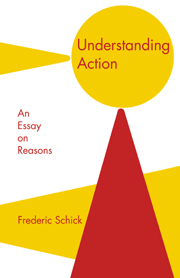Summary
THE MINOR PREMISE
We started with one of Orwell's experiences in the Spanish Civil War. Orwell was in Spain to help in the fight against Fascism there. He took this to mean that he had to shoot Fascists. On the occasion he is writing about, a Fascist appeared but Orwell didn't shoot, this because the man was half naked. He says he didn't “feel like shooting” him. A man exposed in his private parts is just a man, not a Fascist; he cannot be seen as anything but a fellow human being. At least that was Orwell's report of it, and his account of why he didn't shoot.
Our subject here is not war but logic. Can any proper sense be made of Orwell's not shooting this man? Does Orwell himself make sense of it? How would Aristotle, the founder of logic, have taken to Orwell's explanation? I think he would have endorsed it. Orwell notes that the incident was “the sort of thing that happens all the time,” and Aristotle would have agreed there too. He held that the “sort of thing” Orwell mentions occurs in all reasoning and tried to show how. But what he says on the matter is only brief and very obscure.
The theory laid out in Section 2.1 is not the whole of Aristotle's analysis. It is only the part of it that is most frequently cited, that every practical reasoning has two sorts of premises, one sort presenting certain beliefs, the other certain related desires.
- Type
- Chapter
- Information
- Understanding ActionAn Essay on Reasons, pp. 55 - 101Publisher: Cambridge University PressPrint publication year: 1991



